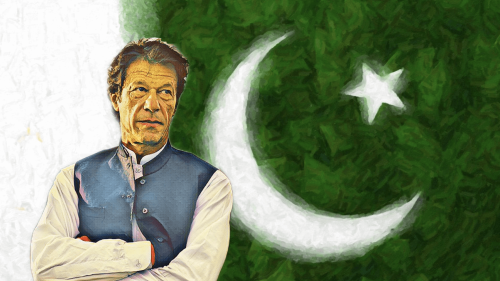Towards Defusing Indo-Pak Tensions
Pakistan and India are inching towards the precipice of a catastrophic war, which has the potential of going nuclear and resulting in the deaths of millions of people on both sides. While the history of Indo-Pak relations has always been characterized by tensions, however the current scenario is the result of what India identifies as "cross-border terrorism" allegedly being engineered by the Pakistani military establishment. India has for more than a decade been accusing Pakistan of waging an "undeclared war by proxy" in the troubled Indian state of Kashmir. Specifically, India impugns Pakistan for backing jihadist style Islamist groups that have staged several terrorist attacks in Kashmir.
The current tension began after a recent series of attacks in both Indian controlled Kashmir as well as India proper. The first such attack was the bombing of the Kashmir legislature building in Srinagar on the first of October that left 38 dead. This was followed by the December 13 attack by gunmen on the Indian parliament in New Delhi itself, in which 12 people were killed. The attack on the Indian parliament prompted India to deploy a huge military force of 750,000 troops along the line of control (LOC) in Kashmir. Responding to the escalation of tensions between the two countries, Pakistani President General Pervaiz Musharraf on January 12 announced that his government would not allow any group to use Pakistan as a launchpad for attacks against any country. This was followed by a clamp down on jihadist groups in Pakistan. Unfortunately the arrests of thousands of suspected militants and the banning of groups did not prevent the most recent incident. On May 14 the militants struck again, this time attacking a military camp in Kashmir killing 34 people, which were mostly the wives and children of Indian soldiers.
Under present circumstances, India does not trust Pakistan, particularly the government of General Musharraf, regarding its claims of taking the necessary steps to prevent extremist groups from launching attacks against India. In fact, it accuses the Musharraf regime of continuing to sponsor such groups. The BJP government in India has responded to the statements of Musharraf by demanding action instead of mere words. Indian premier Atal Bihari Vajpayee recently stated that India should have attacked Pakistan back in December when the Indian parliament was attacked. Vajpayee and his cabinet colleagues have on several occasions emphasized that India's patience with Pakistan is wearing out, and they have no choice left but to attack and destroy the "terrorist infrastructure" operating in Pakistani controlled Kashmir. Thus, it may only be a matter of time before India does make good on its threats. Meanwhile Pakistan has reiterated its position that while it wants peaceful relations with India, it will "respond with full force", if attacked. British Foreign Minister Jack Straw recently pointed out that the international community will do all it can to prevent the outbreak of war between Pakistan and India. However, this can only happen if the parties to the conflict themselves take the necessary steps.
In the light of this dangerous situation, the government of General Musharraf should be the one to initiate a process of confidence building measures. While Pakistan may no longer be supporting jihadist groups, it is clear that these groups retain the capability of operating on their own. Thus, the only way to prevent them from carrying out future attacks against civilian non-combatants in India is for Pakistan to constitute a Border Counter-Terrorism Force (BCTF) headed by a military official of major-general rank. The proposed BCTF units would have to establish outposts at key "infiltration points" all along the LOC, and would be responsible for monitoring and thwarting any attempts by terrorists to cross-over into Indian territory. Considering the terrain in Kashmir and the length of the LOC, it would not be feasible for Pakistan to alone undertake this project. Therefore, Pakistan should propose to its neighbor that it too set-up a counter-part task force that can coordinate the patrol along the LOC from the other side. The creation of this joint task force will not only minimize the chances of terrorist incursions into India, but also facilitate the creation of an atmosphere of trust and mutual confidence between the two sides. This would also require India to desist from adopting an aggressive position from which it would not be able to extricate itself.
The proposed measure has the potential of defusing the current volatile situation. However, this is only a short-term initiative that Pakistan can seize in an effort to bring back its bilateral relations with India within acceptable parameters. In the long run, both nations would need to engage in a dialogue and clearly define and agree upon what constitutes terrorism. Such a consensus should also distinguish terrorism from a legitimate freedom struggle. In this regard, Pakistan must clearly demonstrate in a concrete manner that it has indeed disassociated itself from such groups that engage in clear acts of terrorism and India must not make the mistake of lumping the extremists with the moderates engaged in a legitimate freedom movement.
The Indian leadership also should realize that even if Pakistan has given up its support for jihadist outfits, the insurgency in Kashmir is not going to disappear, as the extremists clearly constitute a fringe minority, whereas the majority of Kashmiri Muslims support the moderates who are also calling for independence from India. Hence, it is in the interest of India to accept Pakistani calls for resolving the Kashmir dispute through peaceful negotiations. Such parleys would have to be conducted at the bilateral level. Although third-party mediation can help, it would only act as a catalyst, whereas the thrust of dialogue has to involve the principal actors.
The author is a Pakistani graduate student and a teaching assistant in the Center for Middle Eastern Studies at the University of Texas at Austin. He is also a member of the Center for the Study of Islam and Democracy, a Washington D.C. based think tank.

















